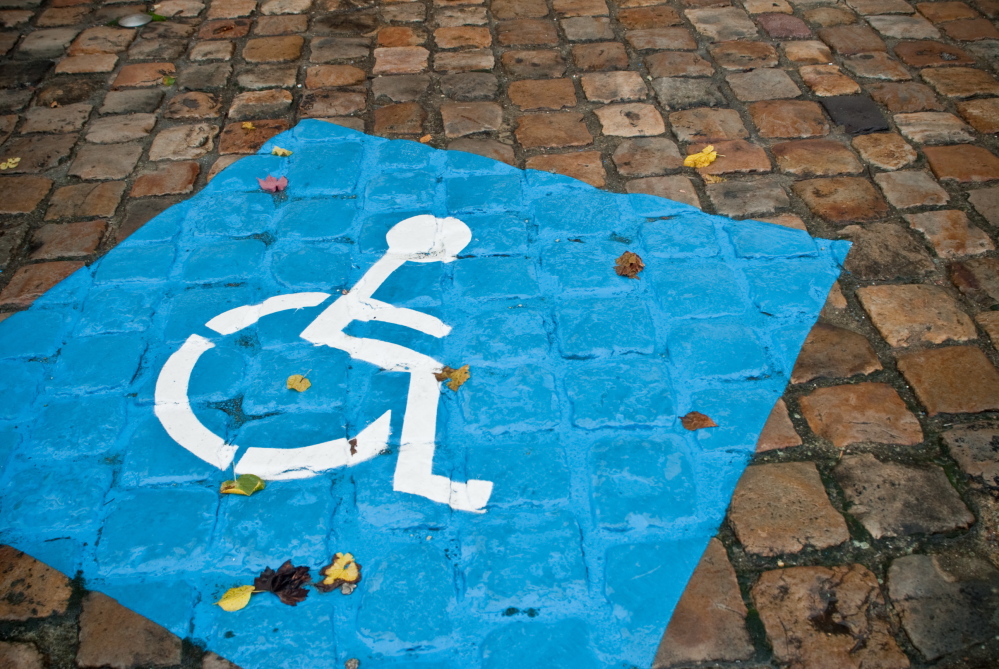Portland has gotten high marks for its livability from sources as diverse as Forbes and Parenting magazines, which cite as pluses the city’s arts scene, plethora of restaurants, laidback tempo and public spaces.
For people with disabilities, however, it’s vastly more difficult to contribute to or enjoy all that Portland has to offer. That’s why it’s good news that the Portland Disability Advisory Committee has started gathering input from people with disabilities on how to make the city more welcoming and accessible to them. The city undoubtedly will have to examine the shortcomings of its services and infrastructure. But the alternative – allowing people with disabilities to remain isolated from daily life – is unthinkable.
Because of widespread problems with a state-contracted private ride broker, disabled Mainers have missed medical appointments and forfeited their relationship with their care providers. And navigating Portland has been and continues to be particularly difficult for people with disabilities.
The Metro bus system can be unwieldy for wheelchair users, and its infrequent service makes it impractical for people who can’t drive and need to get to school or work. What’s more, even when the weather is warm and temperate, people with disabilities find the city’s warped sidewalks and cobblestone streets tough going.
These barriers to access isolate people with disabilities from the wider community, and both lose out. Adam Zimmerman, for example, is legally blind and lives in Deering Center. To get downtown to see clients, Zimmerman, who grew up in Portland and set up his law practice here after being educated in Boston and San Francisco, has to take taxis or get rides from friends and relatives.
Moreover, many other people with disabilities want to work but can’t find a job, driving up the 2012 unemployment rate for Americans with disabilities to 13.4 percent, compared to 7.9 percent in the same year for people without a disability.
Renee Berry-Huffman of South Portland, who uses a wheelchair because she has multiple sclerosis, has described getting a concussion after trying to disembark from a bus or catching a wheel on a curb cut in a Portland sidewalk. And at a community forum earlier this week – the Portland Disability Advisory Committee’s first – others with disabilities reported similar experiences, Berry-Huffman said Thursday. This is hardly a scenario that encourages the disabled to take advantage of Portland’s retail, cultural or culinary offerings.
The advisory panel’s work – including monthly meetings at City Hall as well as the town hall forum – is critical, but we should all be part of the effort to lower barriers to community participation. Our city can’t afford to write off the contributions of anyone who wants to visit, work or live here.
Send questions/comments to the editors.



Success. Please wait for the page to reload. If the page does not reload within 5 seconds, please refresh the page.
Enter your email and password to access comments.
Hi, to comment on stories you must . This profile is in addition to your subscription and website login.
Already have a commenting profile? .
Invalid username/password.
Please check your email to confirm and complete your registration.
Only subscribers are eligible to post comments. Please subscribe or login first for digital access. Here’s why.
Use the form below to reset your password. When you've submitted your account email, we will send an email with a reset code.